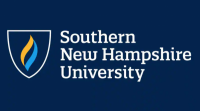
Nearly two decades ago, an online MBA option was quietly brewing at Lehigh University well ahead of the pack. What began as a distance learning partnership with several companies has since exploded into an MBA curriculum that features accommodating on-campus and online options.
A major component of the program’s success is Classroom Live, an interactive platform that allows distance learners to collaborate in real time with their classmates and instructor. The flexible nature of the program enables students to tailor their courses to their needs without sacrificing their education. With six concentrations (Corporate Entrepreneurship, Finance, International Business, Marketing, Project Management and Supply Chain Management), Lehigh believes it has something for everyone- wherever they happen to reside.
To learn more about it, we caught up with Director of Graduate Recruitment & Admissions Michael Tarantino. Well-versed in the world of MBA programs, Tarantino’s enthusiasm for Lehigh’s adaptable approach is evident as he explains its impact on individual students and future generations alike. We hope you enjoy. (This interview was done via phone & has been edited minimally for length & clarity).
ACR: Lehigh’s MBA program offers options like distance learning which accommodates students in unique ways. How does the program work?
Michael Tarantino: We offer different delivery methods which fall under the same program. All MBA students are equal here and have the option to take classes online. They can take all of

Michael Tarantino, Director of Graduate Recruitment & Admissions
their classes online, just a few, or none at all. This really offers unparalleled flexibility. For instance, if an on-campus student has to relocate or can no longer attend classes due to a scheduling conflict, they can continue their education uninterrupted by taking their courses online.
ACR: So students can seamlessly take their education from on-campus to on-line without losing any credits or other benefits?
MT: Correct. What’s unique to our MBA program is that our distance learning option is exactly the same curriculum as our on-campus option. The same is true for our faculty; whether you’re a distance learner or you’re on-campus, the faculty members are the same. And all of our MBA students, regardless of whether they’re doing it on-campus or online, can elect to be full or part time. They can take a single class one semester and then three classes the next semester so that they can tailor it to their own needs.
ACR: Is it difficult to strike a balance between that flexibility and the challenging curriculum that Lehigh is known for?
MT: We take an integrated approach to our curriculum and have collapsed a lot of disciplines by combining some classes together. When most MBAs take somewhere in the 50-credit range to complete, ours is only 36 which is a huge advantage for students. It’s not about cramming in a lot of extra courses. It still has the rigor of what you would expect from Lehigh but they can fit much more into their schedule.
ACR: A big part of the success of the distance learning option is Classroom Live, a collaborative instructional online platform. Tell us a little about it, Michael.
MT: It’s the number one advantage of this program in my opinion. It’s also the toughest thing for people to understand the significance of until they’ve experienced it. It has its roots years ago when we streamed our faculty out live to partner companies via satellite. Then we started streaming actual classrooms to students at home so that they could see the class and watch the instruction. Today, the Classroom Live platform takes it to an entirely new level of distance learning.
Classroom Live is a fully interactive classroom environment that is accessed online as it’s happening in real time; our classrooms are fitted with cameras, audio equipment and multiple screens so that distance students can view the class in real time, ask and answer questions, and interact with their on-campus classmates and instructor. A student sitting in row 2 interacts with a student sitting at home on their couch. A major shortcoming of a normal online program is that there is no way to network- it’s essentially independent study. Here, you log in weekly to your classes, you see the same classmates, you work in groups with them and you get to know your instructors.
ACR: Another unique attribute of your program are your students. They come from a variety of educational and professional backgrounds, don’t they?
MT: Yes, they’re across the board. We have students who come from liberal arts degree, the non-profit world, from manufacturing which is important to our region… their diversity is amazing. I would say a minority of our (MBA) students come from traditional business disciplines. Lehigh is an engineering school so we tend to attract more engineers who see an MBA as a very valuable asset to their careers. This kind of interdisciplinary makeup is important to their education. With an MBA, you can come from anywhere and go anywhere when you leave. That makes it so different than most other graduate degrees.
ACR: Is there a difference in student population when comparing those who take all or most of their classes online versus those who are chiefly on-campus?
MT: Our students who work exclusively online tend to be more established in their careers. I think it’s in part because veteran workers know the value of a brand name. Going to the school down the road from their house perhaps doesn’t have the cache that an MBA from Lehigh has. Some of our online students live nearby but due to their working hours they can’t take classes on-campus every semester. Whether they’re in Atlanta, Georgia, or just down the road from us here in Bethlehem, Pennsylvania, they get the same education.
ACR: As more people seek flexibility in their lives, do you foresee the distance learning option to gain even more popularity?
MT: I do. We’re now in the Millennial Generation and they are uber mobile, jumping jobs and moving around the country and even the world. Our program is ideal for them. If you have to transfer jobs, you won’t lose your credits just because you need to take courses online. We want to be open to this new, mobile student. It’s an exciting time for sure. We had a recent student who took a job in Seattle working at Starbuck’s corporate office and he was able to finish his MBA with us online. Maybe you need to move to China for your job, or New York. You get the same education and same faculty without any outsourcing or degradation of the education.
ACR: Do you find that students today are more interested in choosing entrepreneurial path vs a corporate one following graduation?
MT: That’s really trending now- more people are seeking that entrepreneurial style which proves useful for their creative thinking and leadership skills even within a corporate environment. I would say that we have a balance between both sides at Lehigh. One of the six concentrations that our MBA students choose from is Corporate Entrepreneurship so we do see people who fit that category or who are interested in taking classes in that concentration. But what we typically see are students who may be interested in the corporate ladder approach but they have a keen eye towards an entrepreneurial way of thinking for their Plan B of starting their own business or independently consulting.
ACR: Increasingly, prospective MBA students are looking at the return on investment when it comes to choosing a program. What do you believe distinguishes Lehigh from the pack as far as ROI is concerned?
MT: Lehigh’s strong academic history is important to consider for prospective students. Our graduates habitually give us their approval. Because we’ve crunched credits together and provided a 36 credit MBA program, our cost per credit is very low. You can obtain an MBA from us for under $40,000 which is significantly less than peer schools and not nearly as overwhelming. And as we talked about, our flexibility is unmatched. Our graduates leave with a top level education, having learned from an outstanding research faculty. And they have a smaller alumni network to leverage to their advantage.
ACR: Lastly Michael, what do you love most about your work at Lehigh University?
MT: In my role, I get to read through applications, meet people from different backgrounds, and listen to what their goals are. Our students are here to be better and grow. It’s great to be a part of that process and watch as they accomplish their goals. It’s also a fun place to work and a wonderfully inclusive school culture. In my opinion, there is nowhere better to get an MBA than right here.







